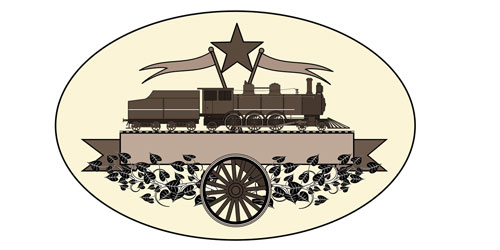《论语诠解英文版》——Chapter VI "雍也" (Yongye)
[6- 1] 子曰: "雍也可使南面。"
6.1 The Master said, "Yong should be appointed as an important officer to govern a country."
[Comment] "雍 yo ng" was a disciple of Confucius. His surname was "冉咖," given name"雍yong ," and he also held a courtesy name of " 仲弓zhong gong." " 南 面 na n mian" literarily means "facing the south." In ancient China, a position facing the south was regarded as a respected one. "The Son of Heaven" (prince), as well as officials all sat facing the south.
[Reading] Yong was one of the leading disciples of Confucius, and his tal ent impressed the Master so much that he was convinced Young was capable and virtuous enough to run a country. For Confucius, when a student had completed his education, and also distinguished himself, he should apply to become an officer. This idea is fully illustrated in Chapter XIX " 子张Zizhang."
[6- 2] 仲弓问子桑伯子。子曰:“ 可 也 ,简 。"仲 弓 曰:“ 居 敬 而 行 简 , 以临其民,不亦可乎?居简而行简,无乃大简乎?“子曰:"雍之言然。”
6.2 Zhonggong asked about Zisang Bozi. The Master said, "He may do. He may be easygoing, but he does not tolerate trivialities." Zhonggong asked again, "Is it not right, even though he is casual in his governing of people, that he remains reverential and sincere? Would it not be too much if he is casual and puts into practice the attitude of casualness?" The Master said, "Yong, you are right."
[Comment] "子桑伯子 zT sang b6 zT" was a native of the State of Lu. "可ke" means "can, be able to" and "举敬 ju j1ng" might translate as "respect ful, sincere, self-disciplinary." "临 Ifn" connotes the verbs "to encounter, to face." "无乃 WU nai" means "Isn't it so? " "大ta i" is here used inter changeably with "太 ta i."
[Reading] This section concerns ways of handling things. Confucius argued for being straight and decisive in doing things and would not tolerate trivi alities and casualness. He also believed it is important that one should not be indolent and careless in handling affairs. That is why he agreed with Zhong gong.
[6- 3] 哀公问: "弟子孰为好学?”孔子对曰: “有颜回者好学, 不迁怒,不贰过,不幸短命死矣。今也则亡,未闻好学者也。"
6.3 Duke Ai of Lu asked the Master, saying "Which one of your students loved to study most?" The Master answered, "It is Yan Hui who never blamed others and never repeated his faults. Unfortunately he died young. Since then I have not yet heard anyone who was equally serious about learn ing.
[Comment] "颜回 yon hu1" was Confucius'most favorite disciple. Unfor tunately, he died young and Confucius was devastatingly saddened by his premature death.
[Reading] This section depicts Confucius'praise of Yan Hui, an eminent disciple of his. Yan Hui was not Confucius'most talented disciple, but he was certainly his most dedicated and hardest-working student. Confucius was most impressed with two particular qualities that Yan Hui demonstrated: he never blamed others for his mistakes and he never repeated his faults. It should be noted that the objective of Confucian education was not to train professionals but rather to develop moral disposition and cultivate one's character. Yan Hui appeared to have embodied this Confucian teaching phi losophy.
[6- 4] 子华使千齐,冉 子 为其母请粟。子曰: ”与之爸。“请益。曰: ”与之庾。"冉子与之粟五秉。子曰: “赤之适齐也,乘肥马,衣轻裘。吾闻之也:君子周急不继富。"
6.4 Zihua was dispatched on a mission to the State of Qi. Ran Zi requested grain for his mother. The Master said, "Give her one ju." Ran asked for more. The Master said, "Give her one yu." But Ran Zi gave her five bing. The Master said, "On this trip to Qi, Chi has a carriage drawn by fat horses and he wore light fur coats. I have heard that a man of true virtue should help the needed; he should not transfer wealth to the wealthy."'
[Comment] Both "子华 zT hua" and "冉子 r如 zT " were Confucius'disciples.
“子华 zT hua" was a seasoned diplomat. The surname of "冉子" was "冉ran." His given name was " 求 qiu," and he held a courtesy name of " 子 有zT yo u."" 冉子" was also known as "冉有 巾n yo u." ' 签 t u,"" 庾 y u" and '秉bing" were all measuring units in ancient times with " 签 fu," measuring the smallest and '秉 bTng" the largest. " 益 y1"translates as "to increase," while"急jf" indicates a state of "poverty." "周zho u" converts to the phrase "to provide what is needed." "继 j1"suggests that one "has a surplus."
[Reading] Human-kindness remains one of the core values of Confucian thought. For Confucius, loving people is not just to love one's family members or friends. Rather, love should be extended to all human beings—l o vi ng all men. In addition, Confucius strongly believed that the man of true virtue should help those in need and should not help to make the wealthy wealthier.
[6- 5] 原思为之宰, 与之粟九百,辞 。 子 曰: "毋!以与尔邻里乡党乎!”
6.5 Yuan Si was a house manager in the Master's family. The Master gave him nine hundred measures of millet as salary, but Yuan Si declined them for being too much. The Master said, "Do not decline them. You may give them away to people in your neighborhood."
[Comment] "原思yua n si " was a disciple of Confucius, whose courtesy name was " 子思 zT si." "为之宰 wei zhi z创' translates as "serve as a house manager in Confucius'residence."
[Reading] As discussed in the preceding section, one of the core values of Confucian thought is to love all men. To help others, particularly to help the needy, remains a major concern for Confucius.
[6- 6] 子谓仲弓,曰:"犁 牛之子辞且角,虽欲勿用,山 川 其 舍 诸?”
6.6 The Master, commenting upon Zhonggong, said, "The calf of a farm ing ox has red hair and good horns. Although men may not use them for sacrificial ceremonies, would the spirits of mountains and rivers leave them aside?"
[Comment]"谓 w创' means"comment" while " 犁牛 If niu"refers to"farming oxen." "驿且角xin q i色 ji的 " refers to a kind of cow used for sacrificial ceremonies, which have red hair, a characteristic that usually correlates with straight horns. " 山 川 s ha n chuan" connotes "the spirits of mountains and rivers." "其q f" means "how come" while " 舍 s he " connotes "dessert, aban don." "诸 zh u" is a combination of the sounds of the two characters " 之千 zhi yu."
[Reading] This section registers Confucius'praise of the virtuous deeds Zhonggong performed. Zhonggong was born into an impoverished family, but he distinguished himself through his own efforts, which greatly im pressed the Master. For Confucius, family background was not determina tive. Rather, what matters more is a strong sense of morality, determination and talent that would enable one to realize himself to the fullest during his lifetime.
[6- 7] 子曰: “回 也 其 心 三 月 不 违 仁 ,其 余 则 日月至焉而巳矣。"
6.7 The Master said, "Indeed Hui was able to focus on true virtues exclu sively for a long time without lapse. Others may be able to practice them but only for a short while."
[Comment] In the sentence " 回也其心三月不违仁 ,其 余 则 日月至焉而巳矣 ,”“ 三月的n yue" corresponds to " 日月 r1yue" and may not necessar- ily translate as simply "three months." While "三月 s on yu扩 sugges ts "a long period of time," "日月 r1 yue" connotes "a brief moment, a short while, occasionally." "仁如" implies "words of the heart," which in an extended sense suggests "words of the virtuous." " 违 w 创 ' means "to leave, to depart, " while "心不违仁 xTn bu wei r 的 " indicates the phrase "a heart not departing from true virtues." "其余 qf yu" denotes "others." " 至 zh1" means "not to leave, depart."
[Reading] As Confucius'most eminent disciple, Yan Hui had a profound understanding of the Confucian concept of "1二 Ren" (benevolence, human kindness, love for all, and so on) and had diligently practiced it throughout his life, short though it was. This is why Confucius praised him for "being able to focus on true virtues exclusively for a long time without lapse." Con fucius believed that his other disciples may be able to practice "1二 Ren ," but only on occasion.
[6- 8] 季康子问: "仲由可使从政也与?”子曰: ”由也果,千从政乎何有?”曰: "赐也,可使从政也与?"曰: "赐也达,千从政乎何有?”曰: “求也,可使从政也与?”曰: “求也艺,千从政乎何有?”
6.8 Ji Kangzi asked if Zhong You was fit to serve as an official in the gov emment. The Master said, "Zhong You is a man of resolution; what diffi culty would he encounter in handling government affairs?" Ji Kangzi then asked if Ci was fit to serve as an official in the government. The Master said, "Ci is a man of resourcefulness; what difficulty would he encounter in handling government affairs?" Ji asked the same question about Ran Qiu. The Master gave the same answer, stating "Ran Qiu is a man of talent. What difficulty would he encounter in handling government affairs?"
[Comment] "果g u6 " translates as "resolute, determined," while "达 d6" indicates that an action is "smooth, successful.""艺 y1" means " talented.""何有 he you" is a format for rhetorical questions, in this case, translating as "It could not be difficult, could it?" This was a common phrase in Confucius' time, and found frequently in the Analects. For example,"能以礼让为国乎, 何 有 ?" (If one can govern his state with the rules of propriety, he will not encounter any difficulties, will he?)
[Reading] Here, Confucius compared three of his disciples and demonstrat ed his strong belief that each of them, with their distinct talent, should have no problem in handling government affairs. Obviously, one of the objectives of Confucius'instruction was to foster talents for public engagement, par ticularly for participation in government management.
[6- 9] 季氏使闵子赛为费宰。闵子赛曰: “ 善 为我辞焉!如有复我者,则吾必在汶上矣。"
6.9 Ji Shi sent to ask for Min Ziqian to be the Chief of Bi. Min Ziqian said, "Please politely decline the offer on my behalf. Should they come again with the same invitation, I shall have to run away to the Wen River."
[Comment] "闵子赛 m'fn z'f qian" was an eminent disciple of Confucius, who was appreciated by Confucius for his virtuous deeds in the way as for Yan Hui. His surname, given name and courtesy names were "闵 m'fn ," "损sun," and "子赛 z'f qian" respectively. "费 b1"refers to the fief of " 季氏 j1 sh1," which is located in modern day's Shandong Province. "善 s ha n" im plies "nice words, kind words." "复我 fu w6" means "summoning me once again." " 汶 上 we n shang" refers to the Wen River in today's Shandong Province, which ran through the States of Qi and Lu at that time.
[Reading] This passage shows how virtuous Min Ziqian was when he re jected a tempting invitation from Ji Shi to work for him as Chief of Bi. As the passage indicates, Ming Ziqian would rather run away to the State of Qi, which was on the other side of the Wen River, than serve Ji Shi. His diplo matic way of turning down Ji Shi's offer was praised by Zhu Xi (1130-1200 AD), a claimed exponent of Neo-Confucianism in the Song Dynasty (960- 1279 AD), for being both determined and courteous, which was the best way to protect himself in a chaotic political period: preserving integrity and self defense at the same time.
[6- 10] 伯牛有疾, 子 问 之 , 自 牖执其手, 曰: "亡之,命矣夫! 斯人也而有斯疾也!斯人也而有斯疾也!”
6.10 Boniu was seriously ill and the Master went to see him. Holding his hand from the window, the Master sighed, "Alas, he is dying! How come such a nice man should suffer from this illness! How come such a nice man should suffer from this illness!"
[Comment] "伯牛 b6 niu ," that is "冉耕 ra n geng," was a disciple of Confucius and suffered from leprosy. "牖yo u" refers to windows on the southern side of a house. "矣夫 yT fu" is an emphatic particle, while "斯人 s1 r的 " co nnotes "people of this kind."
[Reading] In this section Confucius lamented the fact that Boniu, one of his disciples known for being virtuous, was suffering from a rare disease. "Is this the will of Heaven?" Confucius asked himself rhetorically.
[6- 11] 子曰:“ 贤 哉 ,回 也! 一 笚 食 ,一 霖 饮 ,在陋 巷 ,人不 堪 其 忧 , 回也不改其乐。贤哉,回也!”
6.11 The Master said, "How admirable was Hui's true virtue! Contented with a single bamboo bowl of rice and a gourd-cup of water and living in a shabby narrow alley, Hui was delighted to learn, while others tried to stay away from the distress of simple life. How admirable was Hui's true virtue!"
[Comment] "笚d如 " is the term for a bamboo bowI used for containing rice and soup in ancient times. "巷xia ng" refers to narrow paths in ancient villages, which wound between buildings similar to the alleys and lanes of a modern town. "堪 K如 " means "endure," while "乐匼' indicates that one is "delighted to learn."
[Reading] Confucius was very impressed by Yan Hui, his favorite disciple, who, though living in poverty, derived great pleasure from learning and per forming acts of true virtue: "Content with a single bamboo bowl of rice and a gourd-cup of water and living in a shabby narrow alley, Hui was delighted to learn." In extolling Yan Hui, Confucius was also reaffirming his own pur suit of the Way despite hardship and adversity in life.
[6- 12] 冉求曰: “非不说子之道,力不足也。“子曰: “力不足者, 中道而废。今女画。"
6.12 Ran Qiu said to the Master, "It is not that I don't enjoy your doctrines, but my ability is limited!" The Master said, "If it is a matter of ability, one may have to stop half way through. But you give up even before you start."
[Comment] "说yu扩 is used interchangeably with "悦yue ." " 中道而废zhong dao er f创" indicates that one "has stopped half-way a process, thus wasting all the efforts made." "女画 ru hua" translates as the phrase "When one is able to progress, yet one chooses not to do so and gives up instead." Here, "女 ru" is used interchangeably with "汝 ru ," meaning "you." "画hua" is used interchangeably with "戈U hua," implying "draw a demarcation or a line." In this context, it is used metaphorically to mean "to stop what is being done."
[Reading] According to Confucius, persistence, resoluteness, and persever ance are essential to success in learning. "A journey of a thousand miles begins with a single step," so said Lao Zi, the legendary founder of Taoism. However, a beginning step does not guarantee enduring success. One needs to continue his efforts in a tenacious way until the goal is achieved. In this passage, Confucius warned his disciple Ran Qiu that it was not an issue of his ability, but rather an issue of attitude.
[6- 13] 子谓子夏曰: “女为君子儒,无为小人儒。"
6.13 The Master said to Zixia, "You should be a nobleman scholar of true virtue rather than be a petty scholar of the narrow-minded."
[Comment] Here, "女 ru" is used interchangeably as " 汝 ru ," meaning "you."“儒 ru" describes a scholar while the phrase "君子儒 ju n zT ru" refers to a nobleman scholar that is virtuous. "小人儒 xia o 伦 n ru" implies a petty scholar who is mean-minded—not virtuous.
[Reading] Here, Confucius advised Zi Xia that he be a "君子倘 junziru" who is virtuous, open-minded, accomplished and an ideal man of vision rather than be "小人儒 xiaorenru" who is shallow, narrow-minded and one who only cares for trivialities at the cost of the rules of propriety. The distinctive qualities between these two types of scholars, as Confucius dis cussed them here, are revealing and significant.
[6- 14] 子游为武城宰。子曰: “女 得 人 焉 尔 乎? ” 曰: “有澹台灭明者,行不由径,非公事,未尝至千偃之室也。"
6.14 Ziyou was appointed to be the Chief of Wucheng. The Master said, "Have you got any capable men to help you?" Ziyou answered, "There is one called Tantai Mieming, who is aboveboard and abides by all rules. He never comes to my office unless for public business."
[Comment] " 子 游 zT y6u" was a disciple of Confucius. His surname, given name and courtesy names were "言 yon," "偃 沁n," and "子游 zT y6 u." " 武城 wu c 恼 ng" was a small town in the State of Lu and "宰z矿 was the title for an official position. "焉尔乎 yon er hu" is a modal particle. " 澹台灭明tan t6i mie mf ng" was a disciple of Confucius. "f了 x fng" means "walk," while " 径 j1ng " refers to "a narrow path."
[Reading] Confucius'time was marked by the disintegration of the rules of propriety and the emergence of various vassal states, which competed with each other for political power and influence. Feudal lords and princes were all concerned about recruiting talents that would aid their ambitious sociopo litical agenda. For Confucius, it is imperative that his disciples be prepared not only to become engaged in government affairs but to find and recruit talents to join them in realizing their long-cherished dream of "running a country with moral force and bringing peace to the world." ("治国平天下” zh1 gu6 pf ng tian xia)
[6- 15] 子曰: “孟之反不伐,奔而殿,将入门,策其马,曰: `非敢后也,马不进也。'"
6.15 The Master said, "Meng Zhifan does not like to brag about himself. Once during a retreat he was protecting the rear of a military formation. When he was entering the gate, he whipped his horse and said,'It is not that I am brave enough to be the rear guard; it is because my horse did not run fast enough."'
[Comment] "孟之反 m的 g zhT 伯 n" was a minister in the State of Lu. "不伐bu fa" indicates that one is "not to show off, not to brag." "奔 b的 " is a verb used to describe soldiers who are retreating in defeat, while "殿 d ia n" refers to those who would remain in the rear as guards for a retreating army.
[Reading] This section records Confucius'praise of the virtuous deed of Meng Zhifan-never bragging about himself. In Confucius'view, it is important that one share with his team credit for success but to take sole responsi bility for faults.
[6- 16] 子曰:“不 有祝蛇之佞,而有宋朝之美,难乎 免 千今之世矣。”
6.16 The Master said, "Without the eloquent speech of Zhu Tuo but only with the good looks of Prince Chao of Song, it is hard to survive in the present age."
[Comment] "祝zh u" was a temple position. " 舵 tu6 " was a minister in the State of Wei whose courtesy name was "子鱼 zT yu" and who was well known for being expressive and eloquent. "而 矿 is similar to "却q ue ," in dicating "transition." "宋朝 s o ng z 恼 o " was a prince in the State of Song, who was known for being handsome.
[Reading] In this passage Confucius discussed the importance of being articulate, eloquent, and expressive, a communicative ability which he put above that of having an attractive personal appearance like " 宋 朝 so ng zhao," who was known for being good-looking.
[6- 17] 子曰: “谁能出不由户?何莫由斯道也?”
6.17 The Master said, "Who can go out without using the door? So why do people not follow the right Way?"
[Comment] "何莫 he mo" means "何无 he wu" (why not).
[Reading] Here, Confucius considered two things, one physical, the other metaphorical. He first questioned why people did not use the door in a build ing to go out and come in. With this metaphor, he began to question why people in his time refused to accept and recognize his thought of virtue, benevolence, and the rules of propriety. Just like entering a building, when one must use a door, people should follow the right Way in order that social order be maintained.
[6- 18] 子曰: “质 胜 文 则 野 , 文胜质则史。文质彬彬,然 后 君 子 。"
6.18 The Master said, "When raw substance exceeds refinement, one will be coarse. When refinement exceeds raw substance, one will be superficial. Only when the two are balanced will one become a man of true virtue."
[Comment] "文 w的 " translates as "literary talent," while "野 ye" connotes one who is "barbaric." " 史s hT" refers to clerks or the act of being clerical in ancient times. Here, it is used metaphorically to imply one who is over- refined and without substance, hence becoming superficial. "彬彬 bTn bTn" indicates one who has achieved a balance between both refinement and substance.
[Reading] This section focuses on Confucius'understanding of the dialectic relationship between form and substance, more specifically, between refine ment and substance in relation to the self-cultivation of a superior man of virtue. For Confucius, it is imperative to strike a balance between the extremes of excess. In other words, it is important to stay with the Middle Way( 中道 Zhong Dao).
[6- 19] 子曰: “人之生也直,罔之生也幸而免。"
6.19 The Master said, "Men can survive because they are upright. That those who are crooked can still survive is due to the effect of mere luck."
[Comment] "直 zhf" means "正直 z陡 ng zhf" (uprightness, integrity), while " 罔 wa ng" connotes "crooked" and "deceitful."
[Reading] Of the core values of Confucianism we have righteousness, honesty, rectitude, rightness of principle, decent conduct, moral disposi- tion, virtue, and integrity. These are all various facets of " 直zhf." Opposite to these virtuous qualities are moral decadence, debasement, degeneration, abasement, immorality, and meanness. Although depraved people who are in possession of these indecent qualities may also survive in society, they do so not because they are morally correct but because they have mere luck.
[6- 20] 子曰: “知之者不如好之者,好之者不如乐之者。"
6.20 The Master said, "Knowing about learning is not as good as loving it; and loving it is not as good as taking delight in it."
[Comment] "知之者zhT zhT zhe" refers to those who enjoy learning and believe that it is important. "好之者 ha o zhT zhe" refers to those who truly love learning, while "乐之者 le zhT zh色" refers to those who not only love but delight in learning.
[Reading] In this section Confucius discussed different stages of learning: from learning for its own sake, to learning for the love of learning itself, to learning for pleasure. For Confucius, learning is not just for acquiring knowledge to become a professional. Rather, learning is to refine character and enrich life. To learn and also to be able to derive pleasure from learning is, in Confucius'view, the highest stage of self-fulfillment.
[6- 21] 子曰:“中 人 以 上 ,可以语上也;中 人 以 下 ,不 可以语上也。”
6.21 The Master said, "You can discuss profound learning with those whose talents are above average, but you should not do this to those whose talents are below average."
[Comment] "中人 zho ng 沦n" refers to those whose talents are above aver age. " 语 yu" means "to tell," while "上 s ha ng" may be translated as "the great learning of the Way."
[Reading] Confucius strongly believed that for instruction to be meaningful it is important that one know about his students and teach different things differently to each. A teacher should cater to their students'diverse learning needs due to their different levels of achievement, ability, learning and cog nitive capacity.
[6- 22] 樊迟问知。子曰: "务民之义,敬鬼神而远之,可谓知矣。" 问仁。曰: “仁者先难而后获,可谓仁矣。"
6.22 Fan Chi asked about the essence of wisdom. The Master said, "Exercise justice when you make people work for you; encourage people to respect spiritual beings but not to be swayed by them. This is called wisdom." Fan Chi then asked about the nature of Ren. The Master said, "A man of true vir tue always stands to challenges first yet remains behind for others to benefit from success. This is called Ren."
[Com ment] "知 zhl" is used interchangeably with "智 zh1" to indicate "in telligence, cleverness." ' 务 wu" translates as "to enable people to commit to something." "民之义 min zhT yl" is the same as "人之义 伦n zhT yL" "远yuan" means "to distance yet not be confused." "先难 xia n nan" implies "to be the first to stand up to difficulty, to courageously face challenges." "后获hou huo" means "to be the last to enjoy the results of success."
[Reading] Here, Confucius discussed such important issues as "仁 Ren" (true virtue) and " 智 Zhi" (wisdom). Confucian thought is about society, human relations, as well as problems people encounter in real life, which is illustrat ed in the remarks Confucius made in the section. It is interesting to note that here Confucius also cautioned that "People should be encouraged to respect spiritual beings but not to be swayed by them." Confucius never sought to prove or disprove the existence of spiritual beings. Instead, he advised peo ple to remain deferential to and at the same time keep a respectful distance from them.
[6- 23] 子曰: “知者乐水,仁者乐山。知者动,仁者静。知者乐, 仁者寿。"
6.23 The Master said, "The wise derive pleasure in water; the virtuous take delight in mountains. The wise are proactive, pursuing changes; the virtuous are tranquil, freeing themselves from various desires. The wise are light hearted; the virtuous are long-lived."
[Comment] "乐固 means "to like, to enjoy."
[Reading] This section focuses on what Confucius perceived to be dif ferences between the wise and the virtuous. Obviously, both the wise and the virtuous refer to those refined and cultivated men of true virtue(君子Junzi), who possess such exquisite and commendable qualities, which Con fucius wished that others would also emulate.
[6- 24] 子曰: “ 齐一变, 至千鲁 ; 鲁一变, 至千道。"
6.24 The Master said, "The State of Qi, if transformed, could reach the level of the State of Lu. The State of Lu, if transformed, could reach the Way of the supreme principles."
[Comment] "至千zhl yu" translates as "to reach, to attain."
[Reading] In this passage Confucius discussed the essentials of the Way,
which for him, is the guiding principle for governing a country and ultimate ly bringing peace to the world. During the Spring and Autumn Period (770- 476 BC), Duke Huan of Qi (685-643 BC), with the assistance of his capable advisor Guan Zhong, initiated a series of successful political and economic reforms that empowered its government and military resources. While not as strong as the powerful State of Qi, the State of Lu, according to Confucius, kept most of the Zhou rules of propriety including its past institutions and rites. In his view, if the State of Lu was transformed, it would get closer to the Way of the supreme principles, that is, the perfect Zhou institutions and rites, with a unified royal state whose rulers had governed with moral exam ples rather than with punitive rules.
[6- 25] 子曰: '佩不蛌,蛌哉!蛌哉!”
6.26 The Master said, "Wine vessels no longer look like wine vessels. Why call them wine vessels! Why call them wine vessels!"
[Com ment] '佩 g u" refers to a kind of wine container for ceremonies, which is round at the top but square around the bottom.
[Reading] With these remarks, Confucius criticized the sociopolitical chaos and division that prevailed in his time—during which the Zhou rites of propriety were disrespected and the age-honored institutions were transgressed. For Confucius, the Zhou Dynasty represented an ideal social order with its perfect rites, institutions, and above all, its virtuous kings who ruled with personal moral merits who strived to bestow peace and prosperity on the country. Nostalgically, Confucius looked upon the good days of Zhou and dreamed of reviving a unified state governed with moral exemplars and golden wisdom that is the Zhou Dynasty.
[6- 26] 宰我问曰: “仁者,虽告之曰`井有仁焉',其从之也?” 子曰: “何为其然也?君子可逝也,不可陷也;可欺也,不可罔也。"
6.26 Zai Wo asked, "If someone tells a man of true virtue that there is per feet virtue inside a well, should he go inside for it?" The Master said, "Why should he do so? A man of true virtue can die for perfect virtue, but he should not be framed. He may be deceived, but he cannot be fooled."
[Comment] "宰我 za i w6," that is "宰予 za i yu, " was a disciple of Confu cius. His courtesy name was "子我 zT w6 ," but he was also known as "宰我动i w6 ." "从 c 6 ng" means "to follow," while "何为 he wei" translates as "Why this way?" Together they imply the question "Why would I be treated like this?" "罔 wa ng" means "to fool."
[Reading] Confucius believed to be "Ren" is to love all men. However, a man of virtue should not be fooled nor framed by the illogic of a question that sets out to ridicule the idea of "Ren."
[6- 27] 子曰: “君子博学千文,约之以礼,亦可以弗畔矣夫。"
6.27 The Master said, "A man of true virtue studies all kinds of learning yet disciplines himself with the rites of propriety. Thus, he would not deviate from the right track."
[Comment] Here "文 w的 " refers to classics including "六艺 liu yl" (Six Arts: rites, music, archery, charioteering, calligraphy, and mathematics). "畔pan" is used interchangeably with " 叛 pa n" to indicate "betrayal."
[Reading] For Confucius the objective of learning is to study all kinds of useful knowledge including the Six Arts. Still, that is not enough by itself. Only when one disciplines himself with the rites of propriety can he not deviate from the Way.
[6- 28] 子见南子, 子路不说。夫子矢之曰: "予所否者,天厌之! 夭厌之!”
6.28 The Master visited Nan Zi and Zilu was displeased. The Master said to him, "If I have done anything improperly, Heaven would renounce me! Heaven would renounce me!"
[Com ment] "南子 na n zT" was the wife of Duke Ling of the State of Wei, who was notorious for being promiscuous. "矢 s hT" means "to declare for mally, to swear." "否 pT" is the name of one of the hexagrams in "《易经》 yl jTng" (Classic of Changes), which means "obstruction," while " 厌 yo n" means "to dislike, to abandon, to renounce."
[Reading] This section registers Confucius'defensive words that although he went and visited Nan Zi, he did so in thorough accordance with the rules of propriety.
[6- 29] 子曰: “中庸之为德也,其至矣乎!民鲜久矣。"
6.29 The Master said, "The Doctrine of the Mean is the perfect virtue of the supreme level. But for a long time very few people have been able to attain to this level."
[Comment] "至 zh1" means "the highest level." "鲜xia n" connotes "rare."
[Reading] Here, Confucius emphasized the importance of practicing the Doctrine of the Mean, which is one of the critical concepts in Confucian thought. However, Confucius was frustrated that few people would do so, and that even fewer would be able to attain to this level.
[6- 30] 子贡曰: “如有博施千民而能济众,何如?可谓仁乎?” 子曰:“何事千仁!必也圣乎!尧、舜其犹病诸!夫仁者,已欲立而立人, 己欲达而达人。能近取譬,可谓仁之方也巳。"
6.30 Zigong asked, "If a man brings extensive benefits to the people and as sists them with urgent needs, what do you think of him? Would you call him a man of true virtue?" The Master said, "Why just a man of true virtue? He must be a sage. Even Yao and Shun may not have been that perfect! He is a noble man of true virtue who, while seeking to establish himself, also sees that others are established; while striving to succeed himself, also sees that others succeed. He judges others by the same means he judges himself. This is the way to implement perfect virtues."
[Com ment] "何事千仁 he shl yu r的 " means "not just attaining to ' 仁Ren'(perfect virtue) but also beyond it." "已欲立jT yu 11" implies that "one wants to establish himself in society." "立人 11 毛n" translates as "to en- able others to establish themselves in society," while "已欲达 jT yu d6" means "one wants to succeed in society." " 达人 d 6 伦n" indicates some one who "enables others to succeed in society," while " 仁之方 治n zhT 彷 ng " means "a way to implement virtues."
[Reading] In this section, Confucius discussed ways to reach "Ren." For him, the core value of "Ren" is "What you do not want done to yourself, do not do to others,"( 己所不欲, 勿施千人 jT su6 bu yu, wu shT yu 伦 n) (Chapter XV) which is akin to the biblical maxim "Do unto others what you would want them to do to you." (Luke 6:31, New Testament)












